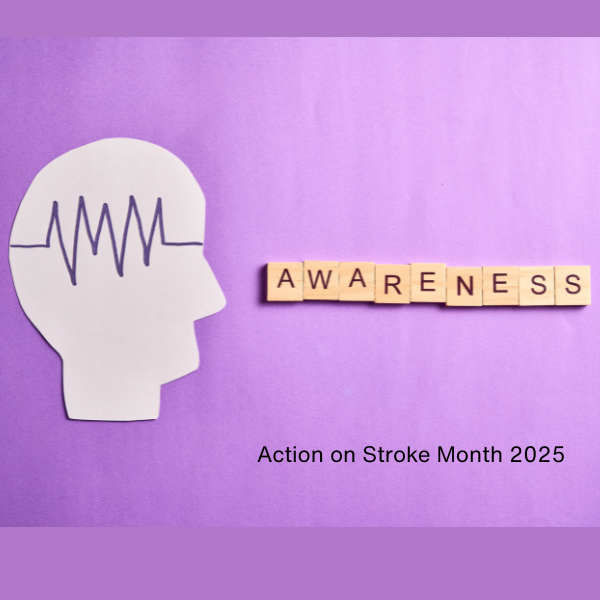Testicular Torsion – A Shift in Medical Opi...
Colon Cancer Negligence Claims.
Colon cancer, also known as colorectal cancer, can be a particularly aggressive cancer, and early diagnosis and treatment offer the best possible prognosis for patients.
A colon cancer misdiagnosis can lead to a delay in treatment, which can allow the cancer time to progress and spread to other parts of the body and make treatment more difficult or in the worse cases, not possible.
Receiving a diagnosis of colon cancer can be incredibly distressing for you and your family, and your suffering could be made worse if you later learn that negligent treatment from a medical professional contributed to the deterioration of your condition.
Whether your cancer was initially misdiagnosed as a less serious condition; your GP failed to refer you to a specialist; or you were provided with inadequate treatment, you may be able to claim compensation for the negligent medical care you have received.
At Lanyon Bowdler, we have helped many clients in a similar situation to seek justice and financial compensation after a colon cancer misdiagnosis or other negligent cancer treatment. Our expert team understand the life changing impact that colon cancer negligence can have on you and your family, and we pride ourselves on handling each case with dignity and diligence. Contact us to find out more about how we can help you as you navigate your recovery and seek justice.
Can I make a Colon Cancer Misdiagnosis Claim?
All medical professionals owe a duty of care to their patients to ensure that their symptoms are taken seriously, and that the necessary tests and examinations are carried out in a timely manner in order to produce an accurate and early diagnosis. Any breach in this duty of care can result in misdiagnosis, which then could lead to a delay in treatment and allow a patient’s condition to progress and worsen. If you have experienced any type of negligent treatment along the pathway to diagnosis and treatment for colon cancer, and your condition has deteriorated as a result, you may be entitled to make a claim for compensation.
Our knowledgeable and empathetic team have helped many people in your situation to claim the compensation they are legally entitled to after a colon cancer misdiagnosis.
Colon cancer negligence can take many forms, including:
- Your initial symptoms were attributed to a different condition such as Crohn’s disease, Irritable Bowel Syndrome, diverticulitis, or ulcerative colitis.
- Your doctor failed to carry out a physical examination, or did not conduct a thorough enough examination after you presented with symptoms.
- Your doctor failed to refer you to a specialist, or did not refer on an urgent basis.
- Your specialist failed to carry out the appropriate testing.
- You were not seen by the specialist urgently enough.
- Your test results were misread or misinterpreted.
- You were prescribed an inadequate course of treatment.
- Your surgery was not performed to the required standard, leaving you with post-surgical complications.
- You were given a diagnosis of colon cancer and received treatment when in fact you did not have the disease.
This list is not exhaustive, and if you have received any kind of substandard or negligent treatment from a medical professional which has impacted your physical and/or mental health, please contact us as soon as you are able to. Our medical negligence experts will assess your case and determine whether you have a valid claim for compensation.
Our Colon Cancer Claims Expertise
Lanyon Bowdler is a specialist firm of Medical Negligence Solicitors with years of experience supporting clients in cancer negligence claims, including those involving colon cancer misdiagnosis. Our expertise in this field is recognised by national organisations, peers, and clients across the UK.
The Medical Negligence Team is recognised in Tier 1 for the West Midlands in the 2025 edition of Legal 500, which states The ‘efficient and pragmatic’ team at Lanyon Bowdler adopts a ’truly personal approach’ when dealing with cases involving birth, brain and fatal claims. It also frequently handles high-value cases relating to amputations and spinal injuries.’
Chambers UK 2025 ranks the department in Band 1 for the Midlands and states ‘an impressive practice group with a growing presence across the West Midlands. The team offers specialist advice across the full gamut of clinical negligence mandates, with particular experience in cases of surgical error, delayed diagnosis and failure to supervise those at risk of suicide. The firm is additionally skilled in cases relating to post-surgical negligence, brain injury and fatal claims.’
Listen here to Beth Heath and a former colleague from the Clinical Negligence team talk about the delay in diagnosis of Cancer, using fictitious, but typical cases to illustrate the challenges people are facing.
Your Colon Cancer Compensation questions answered
Colon cancer shares some symptoms with other, often less serious, conditions such as irritable bowel syndrome (IBS), haemorrhoids, or inflammatory bowel disease. However, it’s always advisable to consult your GP as soon as possible if you notice any of the following symptoms:
- A change in bowel habits lasting for longer than a few weeks, such as constipation, diarrhoea, or narrow stools.
- Feeling like you need to have a bowel movement, but not feeling relieved after having one.
- Bleeding from the rectum, which will be bright red blood.
- Blood in the stool, which may be dark brown or black.
- Abdominal cramps, stomach pains, and bloating.
- Unintentional and unexplained weight loss.
- General weakness and fatigue.
The symptoms of colon cancer often don’t appear until the cancer has begun to grow and spread, so it’s vital to seek medical assistance at the first sign of anything unusual occurring in your digestive system. If you are offered routine screening for colon cancer it is highly advisable to attend the appointment as it can help to detect colon cancer before symptoms begin to show, and pre-cancerous polyps can be removed before they develop into cancer.
Colon cancer occurs when cells divide and multiply rapidly and incorrectly, with the process usually beginning in the large bowel. There is no definitive way to determine who will develop colon cancer, however there are a number of risk factors that may increase the likelihood of it occurring, including:
- Age – Those over the age of 60 are more at risk than younger people
- Diet – Those who consume a lot of red or processed meat, and not enough fibre
- Exercise – Those who live a sedentary lifestyle have an elevated risk
- Lifestyle – Those who are overweight, or who smoke and/or drink alcohol in excess
- Family – Those with a family history of colon cancer
- Health – Those with long term conditions such as Crohn’s disease or ulcerative colitis
If your GP is aware that you fall into any of the high risk categories and they either fail to offer you routine screening or fail to refer you for further testing when you present with symptoms, this may constitute medical negligence. If your cancer progresses as a result of this negligence then you may be eligible to claim compensation.
If you develop any of the symptoms of colon cancer, the first step on the path to diagnosis is to see your GP. They have a duty of care to carry out a physical examination; discuss your general health and family history; and refer you to a specialist for further testing where necessary.
Following your referral, there are a number of tests that may be carried out in order to produce an accurate diagnosis. These include:
- A rectal examination to check for lumps and swelling
- A blood test to check iron levels, and check liver and kidney function
- A colonoscopy to assess the inside of the large intestine
- A biopsy to check for the presence of cancer cells in a tissue sample
- A sigmoidoscopy to examine the rectum and colon
- A virtual colonoscopy scan to build a 3D image of the large intestine
- A CT, MRI, ultrasound, or PET scan, or an x-ray
- A gene or protein test to check which gene/protein caused the cancer
If the diagnostic tests determine that you do have colon cancer, the treatment options available will often depend on the stage your cancer has reached, and whether it has spread to other parts of the body. Surgery is typically used to treat localised colon cancer, by removing the affected part of the colon and therefore removing the cancerous cells from the body.
If the cancer has spread, surgery may no longer be a viable option, and more aggressive treatment options may be required such as chemotherapy or targeted therapy drugs. In some cases, the cancer may have spread so far as to be incurable, in which case your doctor may prescribe palliative chemotherapy or radiotherapy in order to slow the progress of your cancer.
What our clients say.
Contact our Colon Cancer Negligence Solicitors
Our team is your team, and we’re on your side. We will work tirelessly on your behalf to ensure that you receive the maximum amount of compensation available to you, as well as ensuring you have access to any additional support that you and your family may need.
We have a wealth of experience helping clients just like you, who have received negligent treatment from a medical professional. We pride ourselves on providing a service tailored to your individual needs by ensuring we take the time to really get to know you, and gain a deep understanding of what you have been through, and what you hope to achieve by pursuing legal action.
If you’d like to find out more about how we can help you to claim cancer compensation, please get in touch, and a member of our medical negligence lawyers team will be happy to assist you.
We have offices in Shrewsbury, Telford, Oswestry, Ludlow, Hereford, Bromyard and Conwy, where our friendly, knowledgeable staff will be happy to welcome you for an initial chat about your requirements.
Meet the team.
Case studies.
Latest knowledge.
Our awards and accolades.
Get in touch.
"*" indicates required fields

 Back
Back






























 Blog
Blog




 Case Study
Case Study

 Podcast
Podcast












